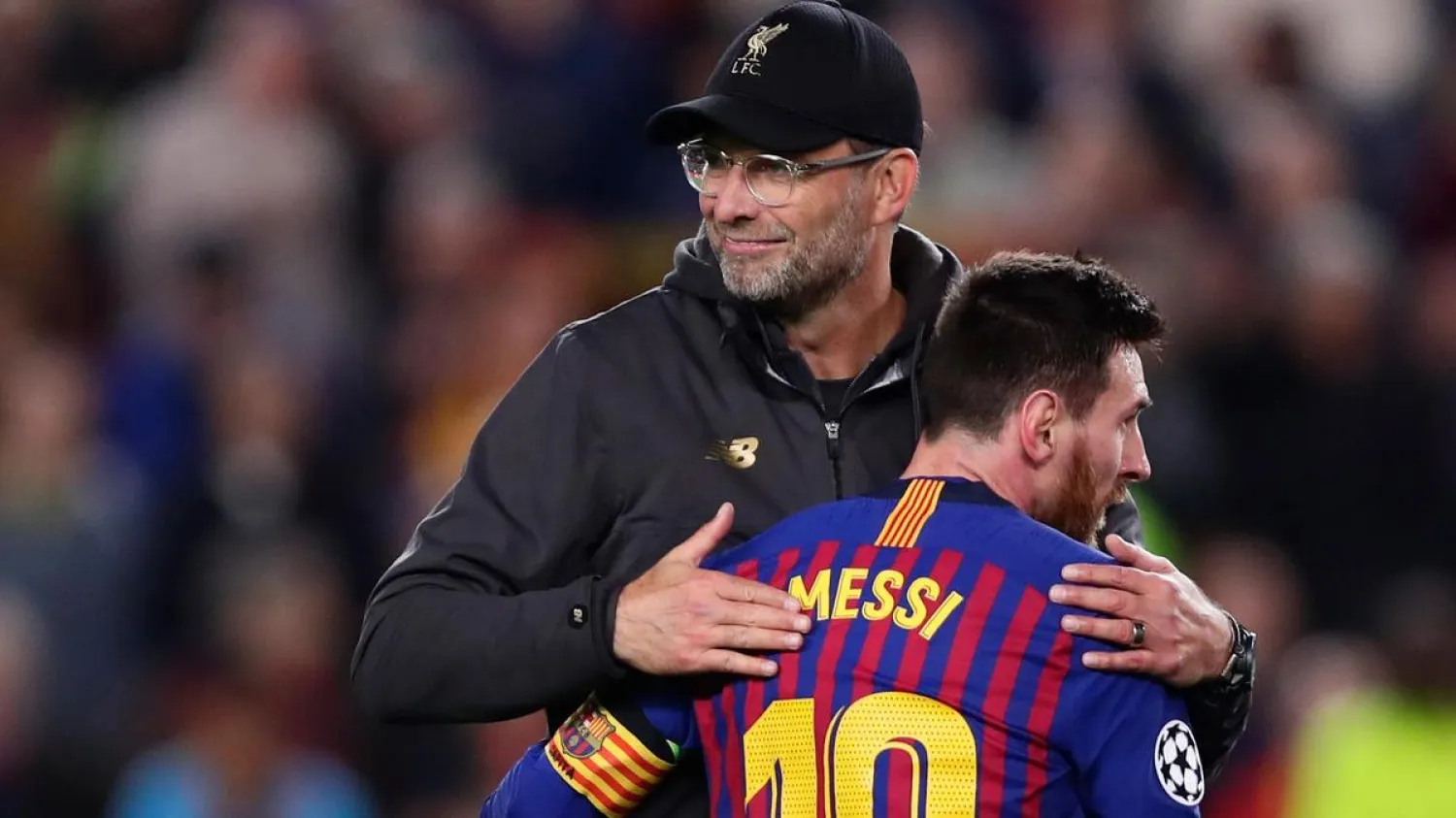Contemplating his side’s Champions League quarter-final against Manchester City last season, Jurgen Klopp said that to sit back and look to absorb pressure against such a side was in effect to try to “win the lottery”. Against the very best, he believes there is no point – at least for a team of Liverpool’s ability – in curling up like a hedgehog and hoping the threat somehow goes away. He vowed to attack, and did, and his reward was three goals in an extraordinary 20-minute spell that settled the tie before half-time in the first leg.
But such an approach against a side of great quality, meeting fire with fire, comes with a risk. Klopp has become slightly more cautious this season. Liverpool have not pressed quite so hard. The experience of the end of last season, as fatigued players struggled through the final weeks of the campaign, has led to compromise. But it has been grudging compromise, a change of approach for the long-term goal of easing the burden on his team; Klopp still fundamentally believes that when it really matters football should be played at the highest possible volume.
In terms of personnel on Wednesday, there was some concession to the fact they were playing Barcelona. There was James Milner, level-headed and reliable, in midfield, while the preference for Georginio Wijnaldum to stand in for Roberto Firmino hinted at a slightly more defensive mindset. Wijnaldum performed manfully in the unfamiliar role and created a chance for Milner with a deft dummy, but if the idea was for him to drop deep and prevent Sergio Busquets acting as Barça’s metronome, it failed. Busquets still registered a 91.3 percent pass completion rate.
Joe Gomez was a more conservative choice than Trent Alexander-Arnold at right-back – although it is an admittedly unusual strain of conservatism that gives a player his first start in five months at the Camp Nou. The idea, presumably, was that his experience as a central defender would help the back four play narrow and so crowd out Lionel Messi – a plan that, for three-quarters of the game, worked as well as any plan to stop Messi has this season. The problem was it came at the cost of surrendering the right flank to Philippe Coutinho and Jordi Alba – at least until Jordan Henderson arrived, eyes bright and tail wagging, to lollop tirelessly, plugging gaps and offering a threat with his long, booming crosses. Before he had a chance to work his influence, though, the space in front of and outside Gomez had offered up the opening goal.
Essentially, though, Liverpool’s plan was still attack. And for 25 minutes or so after half-time it worked. Barça looked rattled. Between the 50th and 70th minutes, they had 34 percent possession. Their pass completion rate fell to 76 percent. Barça may be more used to it than they were when Pep Guardiola’s Bayern went to the Camp Nou in the Champions League semi-final and pressed them in 2015, but they are still susceptible. Simple balls were knocked out of play, their unease seen in the persistent appeals to the admirably phlegmatic Dutch referee, Björn Kuipers.
But the two centre-backs, Clément Lenglet and, especially, Gerard Piqué, were excellent, and the midfield three efficient in dropping deep to offer a shield; Liverpool were never afforded the sort of space to surge into that Chelsea had been last season. Barcelona did not freeze, as they had seemed to in Rome a year ago. And when Liverpool did create chances, they fell, slightly unfortunately, to Milner.
And then there was Messi.
It was not only his brilliance that opened up Liverpool, though. That decisive second goal was also the result of a series of ricochets – it has been a great week for diminutive assassins emerging unexpectedly from a relentless assault to inflict the decisive blow. Could Liverpool feel unfortunate? Perhaps, but then reacting to close space in the box is part of the art of the central defender and this was a night on which Virgil van Dijk, after such a dominant season, was twice punished for failing to react as quickly as an opposing forward in the box.
And so Liverpool ended up – as Guardiola’s Bayern had – paying for their gamble by losing 3-0. As four years ago, Messi scored twice. Back then, all three goals came in the final 13 minutes, here it was two in the final 15, but the message was similar: take Barça on and they might wobble, but the slightest slip can be punished and, whatever you do, do not get tired. In those chaotic final minutes, although Firmino and Mohamed Salah went close to scoring an away goal that might have kept the tie alive, Barça also wasted two three-on-one breaks.
That is the risk teams who take on Barcelona face. Attack them and you may unsettle them, but you will also expose yourself. And when Messi is in the sort of form he has been in this season, that can be fatal. That is not to say Klopp’s approach was wrong – on the contrary, his side came close to a remarkable result – but the possibility of a heavy defeat is inherent in the approach he takes.
And that, of course, is part of what makes Barcelona, particularly with this re-energized Messi, so difficult to play against.
The Guardian Sport









